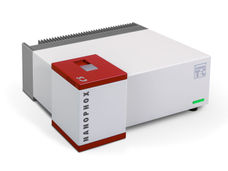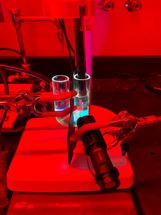Sigma-Aldrich strengthens position in RNAi and cell-based assays
Sigma-Aldrich announced that it has signed a series of agreements that expands its position in the areas of RNA interference (RNAi), gene expression and cell based assays. Sigma-Aldrich and Genospectra, developer of products to support systems biology and drug discovery efforts, have signed several agreements in which Sigma-Aldrich acquires a minority equity stake in Genospectra and is granted access to various Genospectra technologies.
Under the agreed upon terms Sigma-Aldrich gained access to the QuantiGene gene expression profiling assay and Genospectra's technologies for inducible siRNA, a unique nano-particle system for delivery of siRNA and other biomolecules to cells. The companies will participate in a joint program to develop new technology and products in the area of cell-based assays.
Under the terms of the agreements, Sigma-Aldrich will receive licenses to commercialize the inducible siRNA and delivery technologies and distribution rights to the QuantiGene^® product line. Sigma and Genospectra will participate in a joint development program for cell-based assays, particularly to develop novel live cell biosensor assay reagents. These reagents provide real-time data on protein activity and location in living cells, and will make an impact in the High Content Screening and Cell-Based Assay fields.
Other news from the department research and development
These products might interest you

NANOPHOX CS by Sympatec
Particle size analysis in the nano range: Analyzing high concentrations with ease
Reliable results without time-consuming sample preparation

Eclipse by Wyatt Technology
FFF-MALS system for separation and characterization of macromolecules and nanoparticles
The latest and most innovative FFF system designed for highest usability, robustness and data quality

DynaPro Plate Reader III by Wyatt Technology
Screening of biopharmaceuticals and proteins with high-throughput dynamic light scattering (DLS)
Efficiently characterize your sample quality and stability from lead discovery to quality control

Get the chemical industry in your inbox
By submitting this form you agree that LUMITOS AG will send you the newsletter(s) selected above by email. Your data will not be passed on to third parties. Your data will be stored and processed in accordance with our data protection regulations. LUMITOS may contact you by email for the purpose of advertising or market and opinion surveys. You can revoke your consent at any time without giving reasons to LUMITOS AG, Ernst-Augustin-Str. 2, 12489 Berlin, Germany or by e-mail at revoke@lumitos.com with effect for the future. In addition, each email contains a link to unsubscribe from the corresponding newsletter.



























































